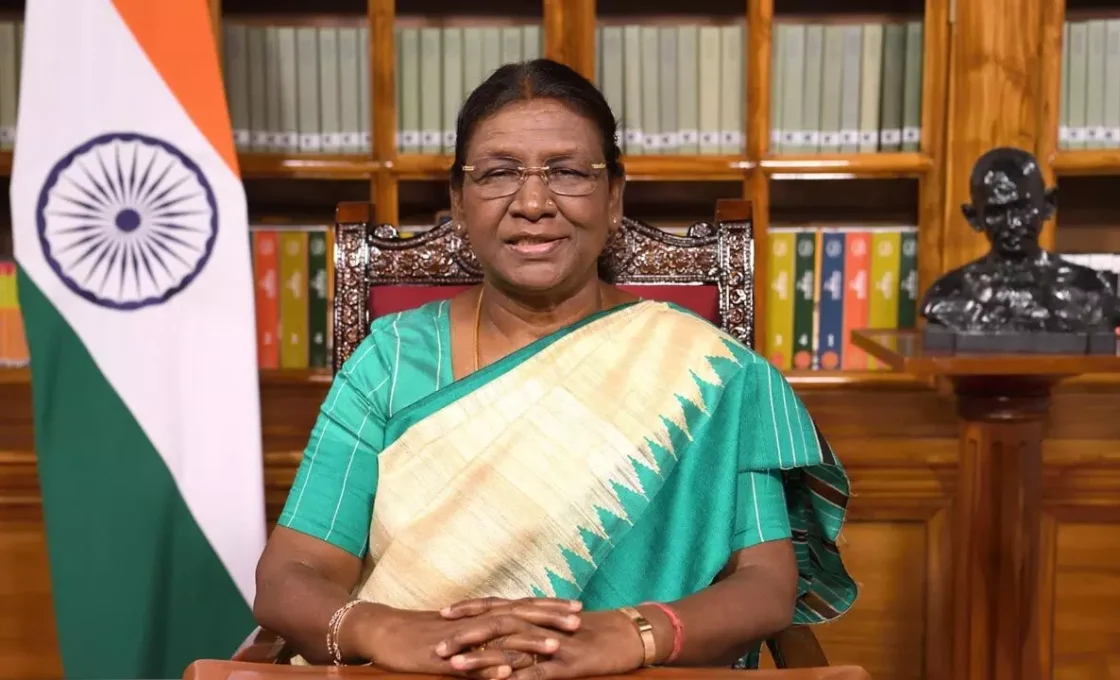President questions Supreme Court’s ruling on deadlines for assent to state Bills
President Droupadi Murmu has exercised a rare constitutional provision and sought the Supreme Court’s advisory opinion on 14 questions to settle the law on whether the president and governors need to follow timelines to decide on state bills referred for consent when the Constitution does not prescribe it.
The reference sought by the President from the Supreme Court has come in the context of a decision of the top court on April 8 which set timelines for the Governor and President to act on bills sent for their consent by state governments.
Exercising her power under the rarely used Article 143 (1), Murmu said that in the present circumstances, it appeared that questions of law had arisen and they were of such nature and public importance that it was expedient to obtain the opinion of the Supreme Court. The President acts on the advice of the council of ministers.
The following are some of the key queries raised by Murmu, reproduced verbatim:
• What are the constitutional options before a governor when a bill is presented to him under Article 200 of the Constitution of India?
• Is the governor bound by the aid and advice tendered by the council of ministers while exercising all the options available with him when a bill is presented before him under Article 200 of the Constitution of India?
• Is the exercise of constitutional discretion by the governor under Article 200 of the Constitution justiciable?
• Is Article 361 of the Constitution an absolute bar to judicial review in relation to the actions of a governor under Article 200 of the Constitution?
• In the absence of a constitutionally prescribed time limit and the manner of exercise of powers by the governor, can timelines be imposed and the manner of exercise be prescribed through judicial orders for the exercise of all powers under Article 200 of the Constitution by the governor?
• Is the exercise of constitutional discretion by the President under Article 201 of the Constitution justiciable?
• In the absence of a constitutionally prescribed timeline and the manner of exercise of powers by the President, can timelines be imposed and the manner of exercise be prescribed through judicial orders for the exercise of discretion by the President under Article 201 of the Constitution?
• In light of the constitutional scheme governing the powers of the President, is the President required to seek the advice of the Supreme Court by way of a reference under Article 143 of the Constitution and take the opinion of the Supreme Court when the governor reserves a bill for the President’s assent or otherwise?
• Are the decisions of the governor and the President under Article 200 and Article 201 of the Constitution, respectively, justiciable at a stage anterior into the law coming into force? Is it permissible for the courts to undertake judicial adjudication over the contents of a bill, in any manner, before it becomes law?
• Can the exercise of constitutional powers and the orders of/by the President/governor be substituted in any manner under Article 142 of the Constitution?
• Is a law made by the state legislature a law in force without the assent of the governor granted under Article 200 of the Constitution?
• In view of the proviso to Article 145(3) of the Constitution, is it not mandatory for any bench of this court to first decide as to whether the question involved in the proceedings before it is of such a nature which involves substantial questions of law as to the interpretation of Constitution and to refer it to a bench of minimum five judges?
• … (Are) the powers of the Supreme Court under Article 142 of the Constitution limited to matters of procedural law or Article 142 of the Constitution extends to issuing directions/passing orders which are contrary to or inconsistent with existing substantive or procedural provisions of the Constitution or law in force?
• Does the Constitution bar any other jurisdiction of the Supreme Court to resolve disputes between the Union government and the state governments except by way of a suit under Article 131 of the Constitution?
